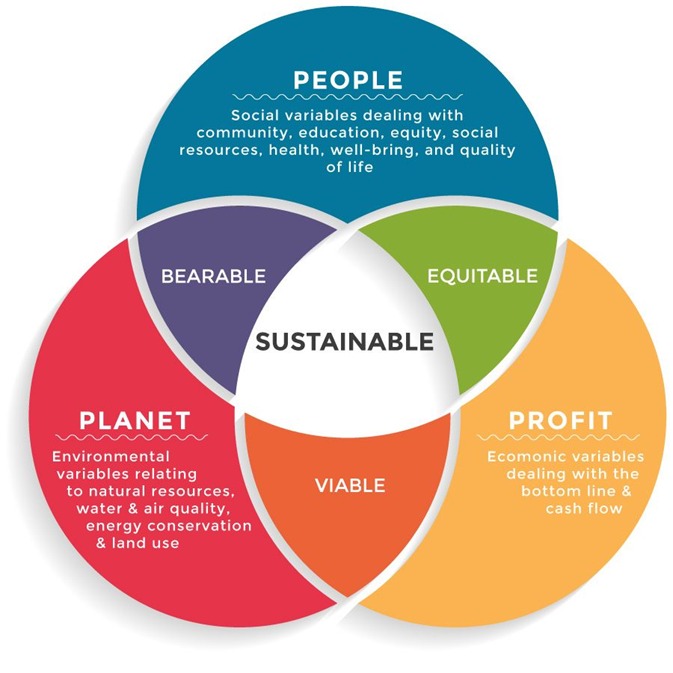NURTURING TOURISM SUSTAINABILITY IN INDIA PATH TO A GREENER FUTURE
July 17, 2023
Tourism plays a vital role in India's economy, cultural exchange, and global recognition. The country's rich heritage, diverse landscapes, and vibrant traditions make it a compelling destination for travellers worldwide. However, with the rapid growth of the tourism industry, it is essential to prioritize sustainability and minimize the environmental and socio-cultural impacts of tourism activities. This article explores the concept of tourism sustainability in India, highlighting the initiatives, challenges, and the path to achieving a greener and more responsible tourism sector.

THE IMPORTANCE OF TOURISM SUSTAINABILITY:
Tourism sustainability refers to the practice of promoting responsible tourism development that conserves natural resources, preserves cultural heritage, and benefits local communities. Embracing sustainability in the tourism sector is crucial for several reasons:
-
Environmental Protection: Sustainable tourism minimizes the ecological footprint by promoting resource conservation, reducing pollution, and protecting fragile ecosystems.
-
Socio-cultural Preservation: It aims to safeguard the cultural authenticity of destinations, preserve local traditions, and support the well-being of host communities.
-
Economic Benefits: Sustainable tourism generates long-term economic opportunities, including job creation, community empowerment, and inclusive growth.
SUSTAINABLE TOURISM INITIATIVES IN INDIA:
India has recognized the importance of tourism sustainability and has implemented several initiatives to foster responsible tourism practices:
-
National Mission on Pilgrimage Rejuvenation and Spiritual, Heritage Augmentation Drive (PRASHAD):
This initiative focuses on the integrated development of pilgrimage destinations, ensuring sustainable infrastructure, and preserving the cultural and spiritual significance of these sites. -
Swadesh Darshan and PRASAD Schemes:
The Ministry of Tourism has launched these schemes to develop thematic circuits and pilgrimage destinations, respectively, promoting sustainable tourism development across India. -
Eco-Tourism Initiatives:
Various states, such as Kerala and Himachal Pradesh, have embraced eco-tourism, encouraging nature-based activities and community participation while conserving the environment. -
Certification Programs:
Organizations like the Indian Green Building Council (IGBC) offer green certification for hotels and resorts, encouraging sustainable practices such as energy efficiency, waste management, and water conservation.

CHALLENGES AND OPPORTUNITIES:While progress has been made, several challenges persist in achieving sustainable tourism in India:
-
Infrastructure Development: Balancing the need for infrastructure growth with sustainable practices poses a significant challenge. Proper planning and eco-friendly design solutions are crucial.
-
Waste Management: Managing waste generated by tourists and ensuring its proper disposal and recycling are key challenges. Encouraging responsible tourism behavior and implementing effective waste management systems are essential.
-
Community Engagement: Involving local communities in tourism planning and development is critical to ensure their active participation, socio-economic benefits, and preservation of cultural heritage.
-
Awareness and Education: Promoting awareness among tourists, industry stakeholders, and local communities about sustainable tourism practices can drive positive change.
THE PATH AHEAD:
To foster sustainable tourism in India, collaborative efforts are required:
-
Policy and Regulatory Support: Governments at various levels should enact and enforce policies that promote sustainable tourism practices, provide incentives, and establish clear guidelines for developers and operators.
-
Industry Collaboration: Tour operators, hoteliers, and travel agencies must integrate sustainability into their business practices and offer eco-friendly options to tourists.
-
Community Participation: Involving local communities in decision-making processes, providing training and capacity building, and ensuring their fair share of benefits can create a sense of ownership and encourage sustainable practices.
-
Awareness and Education: Conducting awareness campaigns, workshops, and educational programs to promote responsible tourism behavior and highlight the importance of sustainability.
Tourism continues to thrive in India, it is imperative to prioritize sustainability and ensure the long-term well-being of the environment, communities, and cultural heritage. Embracing sustainable tourism practices, India can lead the way in creating a greener and more responsible tourism sector. It requires a collective effort from government bodies, tourism industry stakeholders, local communities, and tourists themselves.
The path ahead for tourism sustainability in India lies in continued collaboration among various stakeholders. Governments need to provide policy and regulatory support that incentivizes sustainable practices and sets clear guidelines. The tourism industry must take responsibility by adopting sustainable practices and offering eco-friendly options. Local communities need to actively participate in decision-making and receive the benefits of tourism development. Lastly, tourists themselves should embrace responsible behavior and support sustainable initiatives.
Nurturing tourism sustainability, India can showcase its natural and cultural treasures while ensuring their preservation for future generations. A greener and more responsible tourism sector will not only benefit the environment and local communities but also enhance the overall tourism experience. Let’s all work together in making India the capital of Sustainable Tourism for travellers worldwide.



Leave a Reply